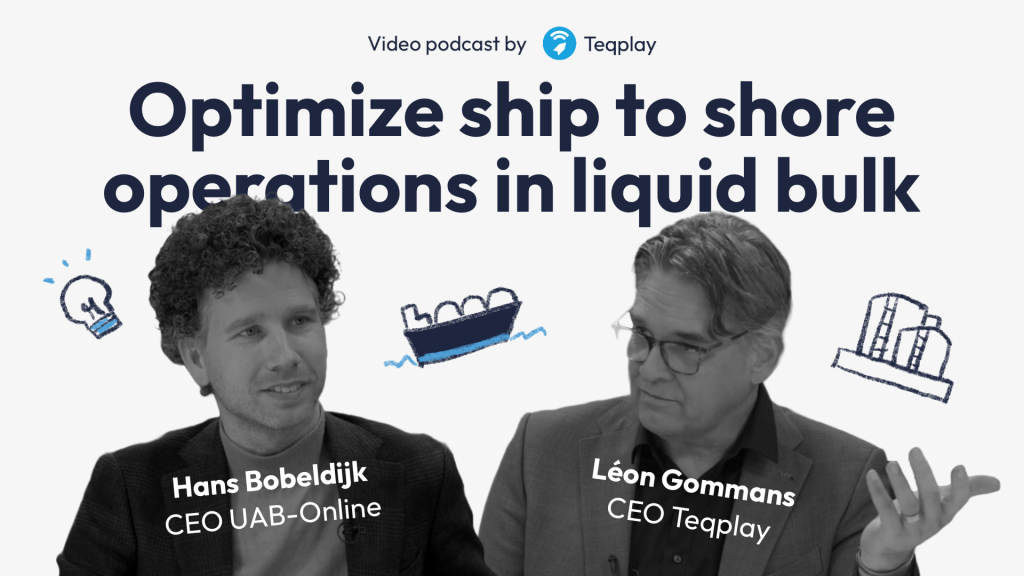Driving Change in Maritime: Optimize Ship-to-Shore Operations in Liquid Bulk
The maritime industry, long known for its conservative processes, is undergoing a wave of digital transformation. In this episode of the Teqplay Vodcast, we sit down with Hans Bobeldijk, CEO of UAB-Online, to explore how digitalization is reshaping ship-to-shore operations in liquid bulk. From the origins of UAB-Online to setting new industry standards, Hans shares his journey, challenges, and bold vision for the future of maritime logistics.
The state of liquid bulk operations: delays, waste, and risk
Despite the high daily costs of seagoing vessels (up to €25,000), operational preparations at terminals often begin only after a ship berths. This results in significant delays and lost efficiency. A common phrase heard among terminal operators: “vessels drop out of the sky”, reflects the reactive nature of the current process.
Digitalization, however, is beginning to challenge this norm.
A proactive approach: preparing before arrival
Digital solutions from companies like Teqplay and UAB-Online aim to flip this script: helping terminal operators prepare before the vessel arrives. Where Teqplay provides visibility into vessel ETA accuracy, port congestion, and voyage tracking, UAB-Online digitizes the administrative side: pre-arrival documentation, compliance forms, and communication workflows.
Together, these tools form a more proactive and connected operational model. When vessels are visible in real time and paperwork is handled in advance, terminals can begin operations immediately upon arrival, saving time, improving safety, and reducing emissions.
Change requires more than software
One of the key takeaways from the discussion is that digital transformation requires more than just tools, it demands a shift in mindset. Simply offering a new platform or dashboard isn’t enough. Teqplay also recognizes the importance of change management: helping users understand why a new approach matters and showing them the direct value of proactive planning.
By focusing on the “why”, we have seen better engagement, faster adoption, and long-term impact.
Rethinking roles: agents, operators, and collaboration
Digital communication platforms are also redefining the roles of key stakeholders. Traditionally, agents served as the go-between for terminals and vessels, handling documentation and updates manually. New tools are streamlining these interactions, facilitating direct communication where appropriate and reducing the need for repetitive, time-consuming email exchanges.
Rather than eliminating roles, this shift frees up agents and operators to focus on tasks that require local insight, decision-making, and support—adding more value where it matters most.
A look ahead
As digital capabilities mature, the next wave of innovation will focus on incentives and collaboration models. Today, vessels often sail at full speed only to wait at congested terminals, a practice that wastes fuel, increases emissions, and undermines efficiency. Rethinking these incentives could unlock new gains in both sustainability and performance.
Real-time planning, shared visibility, and trusted data exchange between all parties will be essential in enabling smarter decisions and more coordinated operations.

